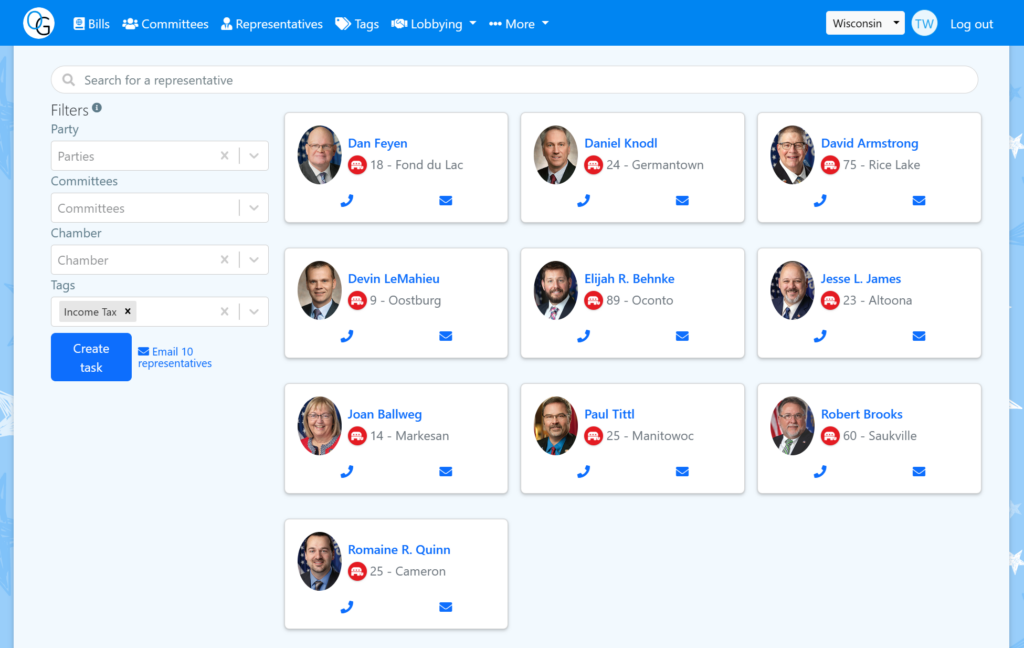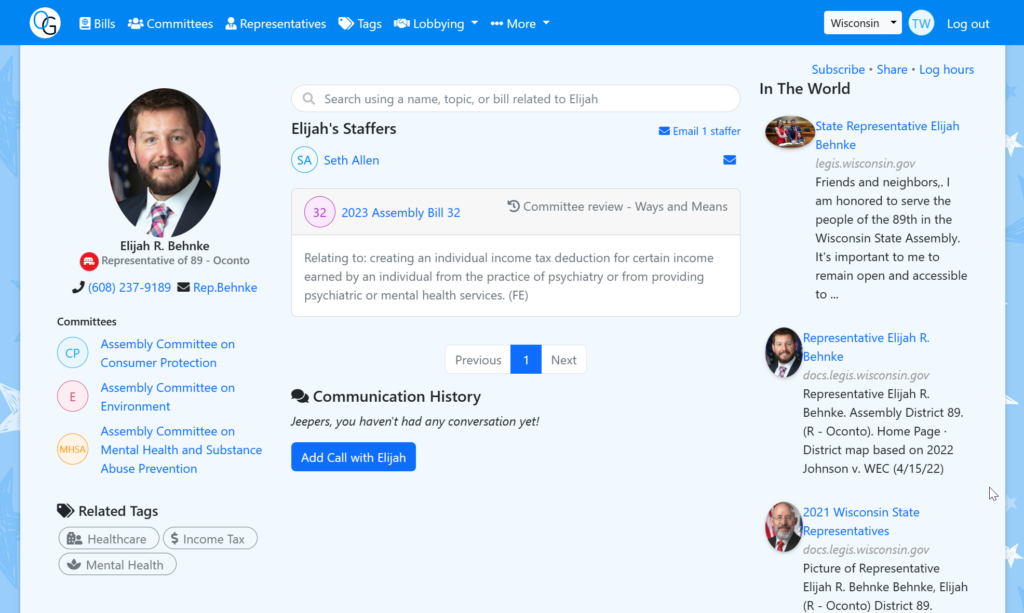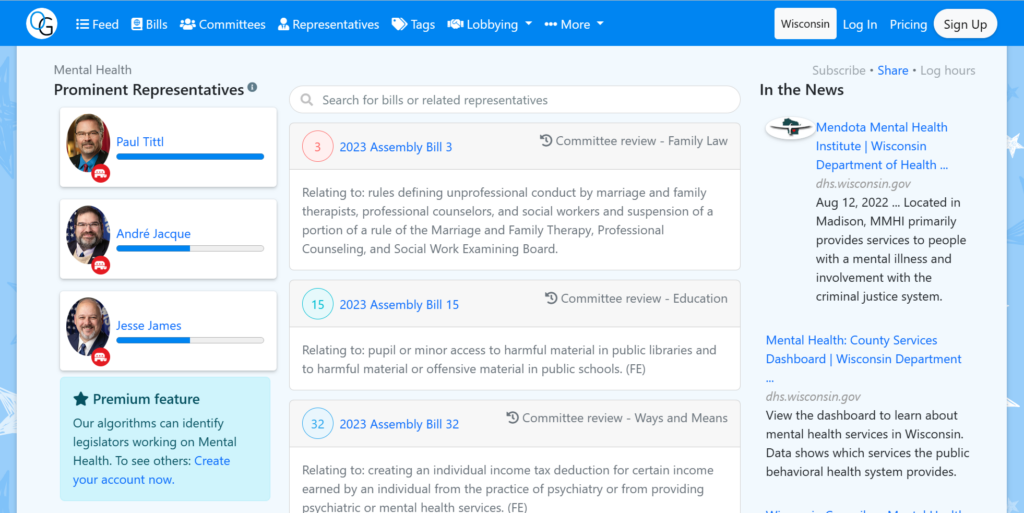Staying ahead of the curve and being well-informed about the latest legislative developments is critical for government affairs professionals. At OurGov, we are proud to introduce our latest innovation: data-driven tagging. In our initial launch, data-driven tagging will be applied to:
What is Data-Driven Tagging and How Does it Work?
Data-driven tagging is a data-driven approach to automatically categorizing different actors in the legislative process. We use an algorithm that looks at the bills sponsored or co-sponsored by each representative and cross-reference them with the bills worked on by each legislative committee, and the bills registered by each lobbying principal.
The algorithm then assigns up to five “areas of expertise” or tags to each entity, based on the frequency of each tag being linked to the associated bills.
The Benefits of Data-Driven Tagging
Improved Insights and Understanding
By tagging representatives, committees, and principals with their areas of expertise, we provide a more nuanced and detailed view of the legislative process and the various actors involved.
This information can help government affairs professionals, trade associations, and lobbyists better understand the priorities and interests of each entity and make informed decisions about who to spend time working with, and who’s interests overlap with their own.
Increased Efficiency
With automated, high-quality tagging, you can quickly identify the representatives, committees, and principals that are active in your area of interest. This helps you efficiently use your time and save resources.
Example Use Cases
Advocate for Your Cause
Imagine you’re a lobbyist for a trade association that represents the renewable energy sector. With data-driven tagging, you can quickly identify the representatives and committees that are active in energy and environmental issues and focus your advocacy efforts on those entities. Here’s an example of filtering by “Income Tax” on the Representatives page:

And see what areas Elijiah is a specialist in:


Keep an Eye on the Competition
Suppose you’re a government affairs professional for a pharmaceutical company. By using data-driven tagging, you can keep an eye on the lobbying principals that are active in the healthcare sector and understand their areas of focus. This information can inform your strategy and help you stay ahead of the competition.
Data-driven tagging is a powerful tool that can revolutionize the way government affairs professionals work. By providing valuable insights and saving time, it helps government affairs professionals be more effective in their work. Try our data-driven tagging feature today and see for yourself how it can help you stay ahead of the curve.
Read more tagging use cases here.
Our Philosophy
Our development team is dedicated to making the lives of government affairs professionals easier and more efficient. We believe that by adding analytics into all aspects of your jobs, we can help you work more effectively and stay ahead of the curve. Data-driven tagging is just one example of our commitment to this philosophy.
